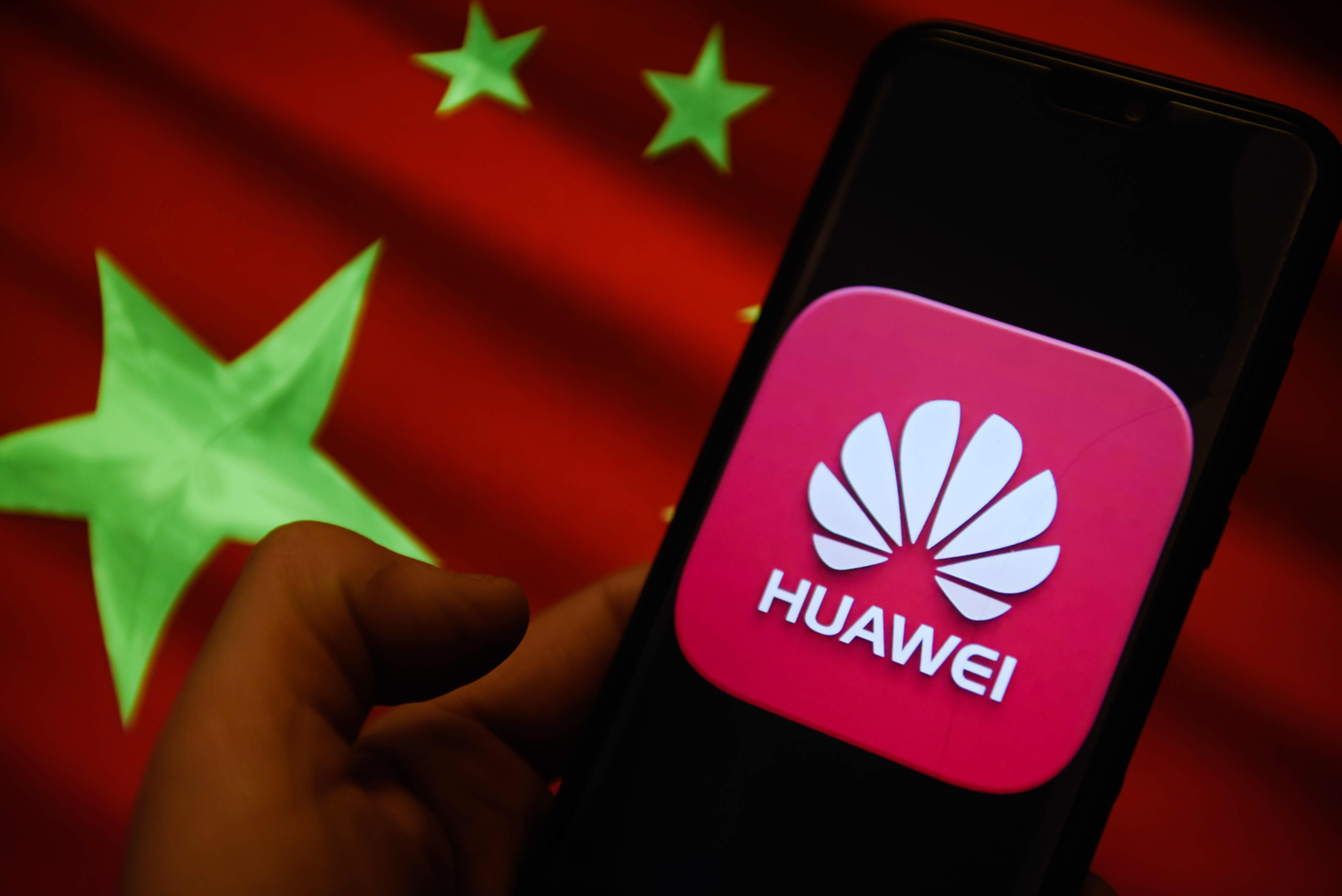
In this photo illustration, the Huawei logo and Chinese flag is seen displayed on an Android mobile phone.
Omar Marques | LightRocket | Getty Images
A new analysis of CVs of Huawei staff appeared to reveal deeper links between the technology giant and China’s military and intelligence bodies than had been previously acknowledged by the firm.
The paper, which looks at employment records of Huawei employees, concluded that “key mid-level technical personnel employed by Huawei have strong backgrounds in work closely associated with intelligence gathering and military activities.” Some employees can be linked “to specific instances of hacking or industrial espionage conducted against Western firms,” it claimed.
The study may heighten concerns among governments who are analyzing claims that Huawei poses a national security risk. Some countries are worried that Huawei could install so-called backdoors in its telecommunications networking equipment that would allow the Chinese government to access user data. Huawei has repeatedly denied it would ever engage in such activity.
The study, conducted by Christopher Balding, an associate professor at Fulbright University Vietnam, and London-based think tank Henry Jackson Society, looked through CVs of Huawei employees that were leaked online from unsecured databases and websites run by recruitment firms.
One CV appeared to show a person who simultaneously held a position at Huawei and a teaching and research role at a military university through which they were employed by the Chinese People’s Liberation Army. Balding linked that employee to a section in the PLA that is responsible for the Chinese military’s space, cyber, and electronic warfare capabilities.
“The circumstantial evidence appears quite strong to support valid concerns about the relationship between Huawei, the PLA, and concerns about intelligence gathering,” Balding said in the paper.
Another CV describes an individual who worked at Huawei but was a representative of a government entity responsible for espionage and counter intelligence. That individual “engaged in behavior that describes planting information capture technology or software on Huawei products,” according to the study.
Elaborating on the research in an email to CNBC, Balding said he had not seen the word “backdoor” in a CV but there is a “wealth of other technical terminology that indicates a pattern of this general type of behavior is taking place.”
“I do not have evidence that the Chinese state has directly ordered a Huawei employee to commit acts of espionage or similar behavior. I say that only because I do not have audio tape of the the order or an email indicating such orders,” Balding said.
“However, I can say the CVs do talk of behavior such as information interception and we know of instances where a Huawei employee holds a dual position in the PLA Strategic Support Force which oversees the electronic warfare and similar non-traditional warfare units. So I cannot say it has been ordered, but the inference of positions and behavior they mention on their CVs appears to indicate they do engage in these acts.”
Huawei’s response
Balding used three CVs in his paper which he said were edited in part to protect the peoples’ identities.
Huawei said it was unable to verify the Huawei employee CVs cited by Balding and therefore “cannot confirm the veracity of all of the information published online.”
“Huawei maintains strict policies for hiring candidates with military or government backgrounds. During the hiring process, these candidates are required to provide documentation proving they have ended their relationships with the military or the government,” the company said in a statement.
The company added that it conducts background checks and provides pre-job training for employees who will access customer networks and data.
“We welcome professional and fact-based reporting on investigations into Huawei’s transparency. We hope that any further research papers will contain less conjecture when drawing their conclusions, and avoid so many speculative statements about what Professor Balding ‘believes,’ ‘infers,’ and ‘cannot rule out,'” a Huawei spokesperson added.
Hu Xijin, editor-in-chief of the Chinese state-backed Global Times newspaper, posted a video in which he said it’s common for ex-military personnel to join private companies.
“There are also young people who give up their civil servant status at national security agencies for better-salaried opportunities in the civilian job market,” he said.
Hu also accused Balding and the Henry Jackson Society of conducting the research for political purposes.
Balding responded to Hu’s comments.
“We are not arguing that hiring ex-military personnel (means) your organization is an espionage front. I simply do not say anything of the sort but that is what they are trying to conflate. I am saying, in Huawei personnel words on their CVs, they held dual positions for Chinese intelligence gathering and electronic warfare units while working for Huawei either taking orders from or coordinating with the Chinese state. That is what is profoundly worrisome,” Balding told CNBC.
Several countries are currently debating the role Huawei will play in 5G — the next generation of mobile data networks that promises super-fast internet speeds that could help underpin technologies such as driverless cars.
The U.S. and Australia have effectively banned Huawei, but other countries like the U.K. are still weighing their options.














Leave a comment